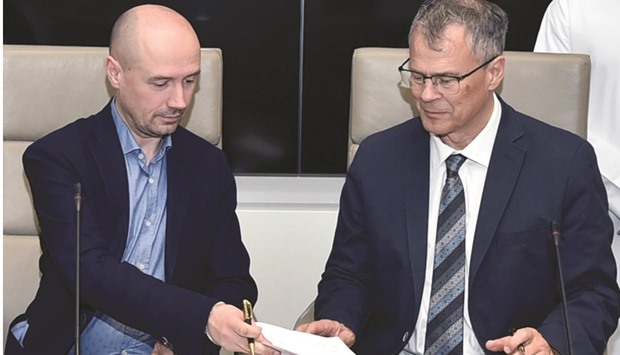The College of Medicine at Qatar University (CMED-QU) has been expanding its international collaborations to provide a medical education of international standards with a
national focus.
Since its establishment, the college has signed seven international partnership agreements that aim to ensure mutual benefit in the areas of teaching, research and
community service.
These agreements include comprehensive collaborations with the universities of Maastricht and Groningen in The Netherlands, joint research and conferences with the University of Illinois, research collaboration with the medical faculty at the Technical University of Dresden in Germany, and development of an innovative Virtual Patient Learning software with Lifelike, an Italian-based virtual simulation company and the University of Applied Sciences and Arts of
Southern Switzerland.
Together these agreements aim to advance co-operative research in the field of medicine that will generate new scientific and practical results, exchange of expertise and knowledge, practical application of joint research findings and their introduction into the educational process, training of highly-qualified personnel through workshops and staff exchanges, joint scientific forums on priority area, and publication of scientific research papers, and methodological and educational literature.
QU vice president for medical education and CMED dean Dr Egon Toft said: “Partnerships with international medical schools and organisations are a key component of the College of Medicine’s mission to advance quality medical education and research in Qatar and in so doing, support national approaches to provide an optimum healthcare sector for the society.”
He added: “They are in keeping with the alignment of our MD programme with international standards and trends and with the needs and specificities of practising medicine in Qatar, as a result, enabling our graduates to seamlessly enter the healthcare sector and be part of the national vision for health. Additionally, they serve to maximise exposure of our students and faculty members to global trends and practices in medical education and research.”

Dr Toft,right, at an agreement signing.
